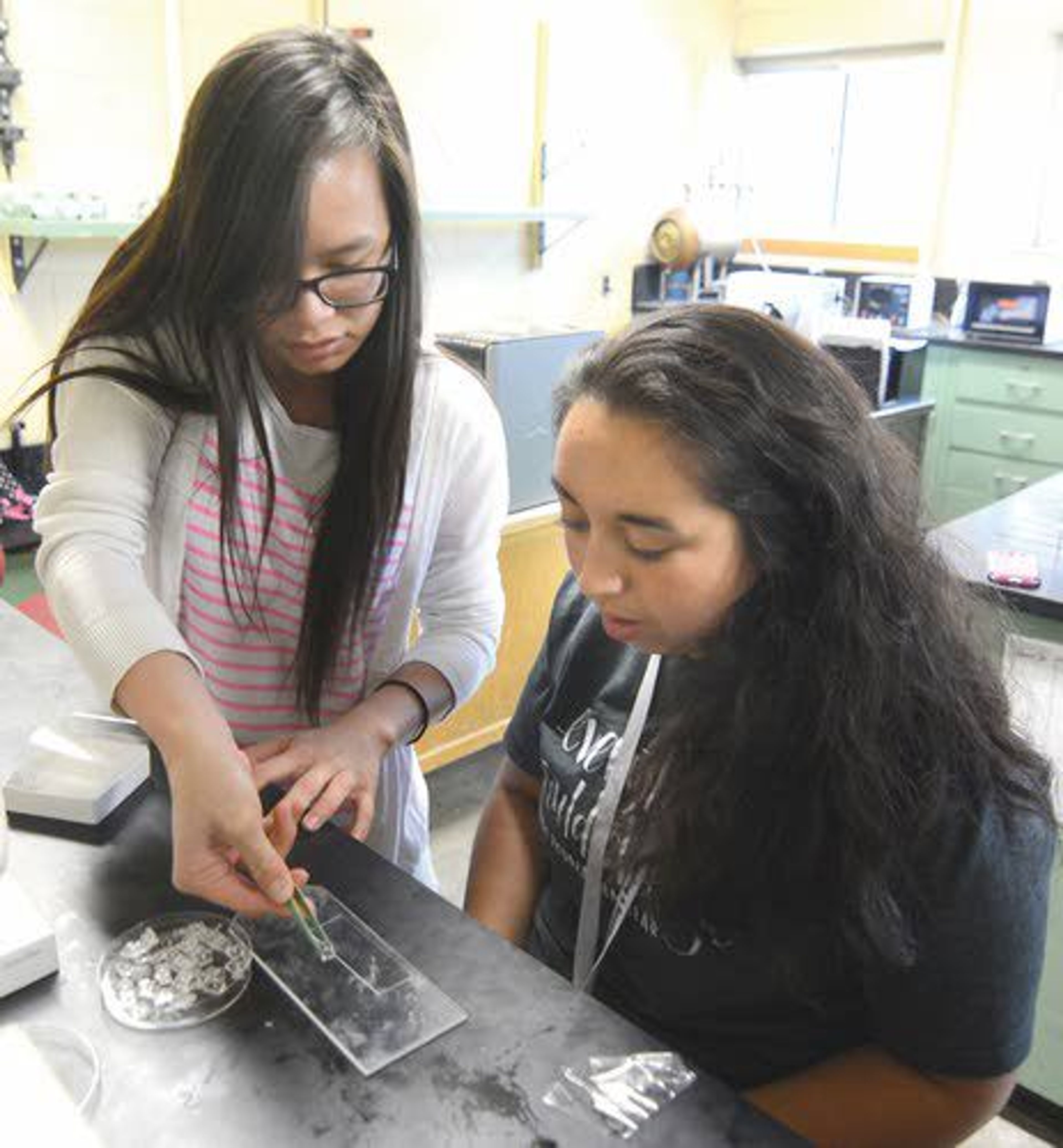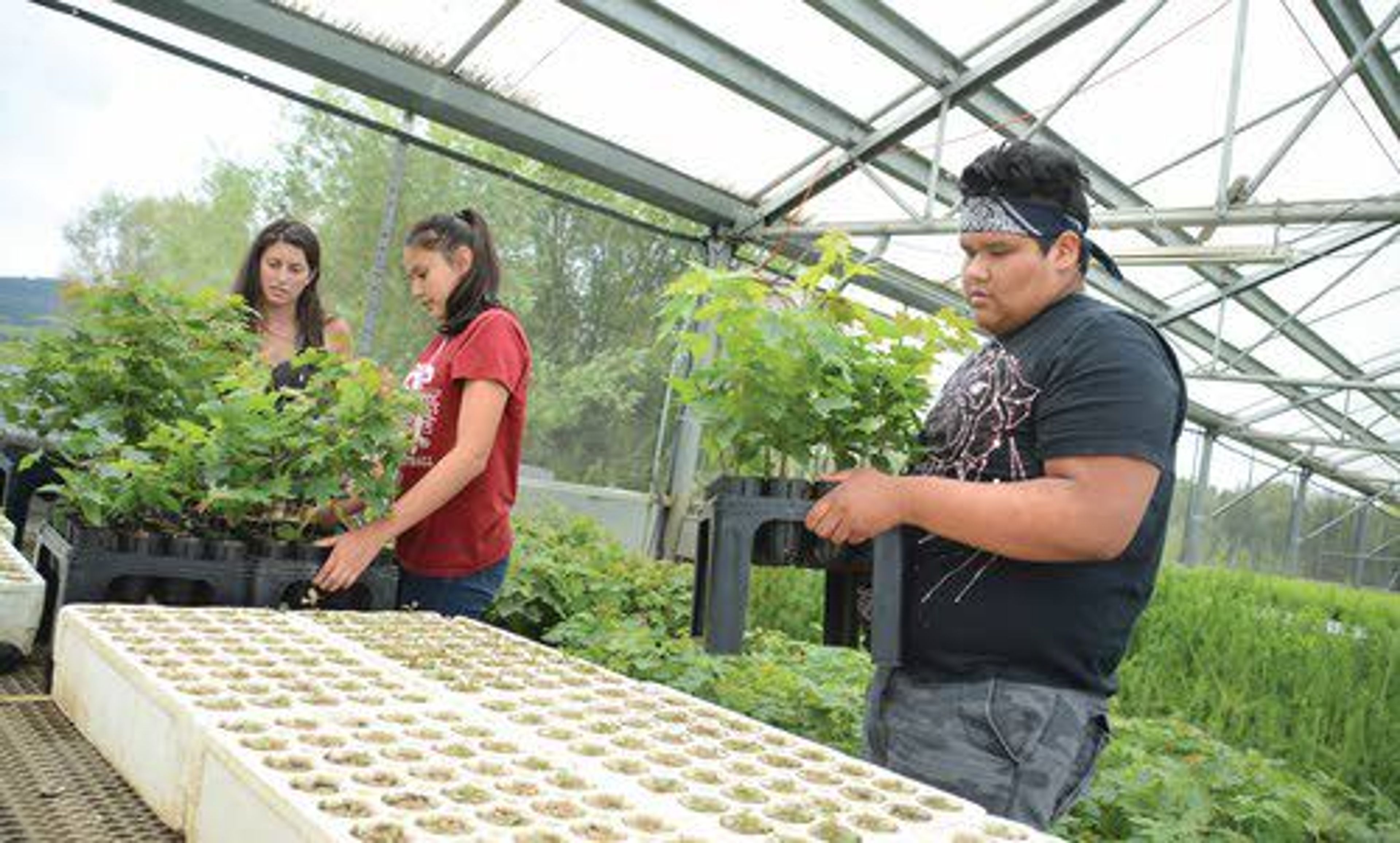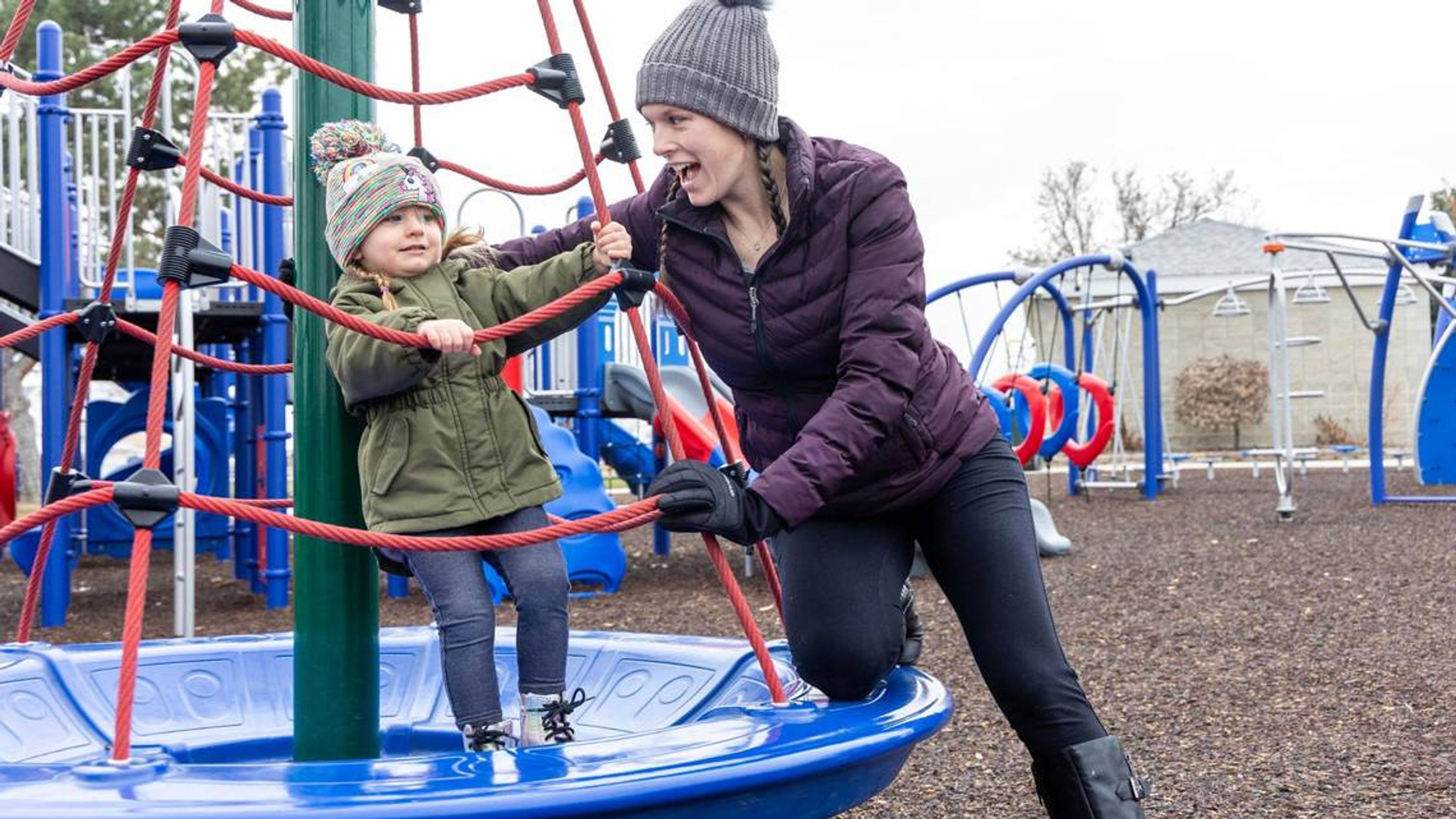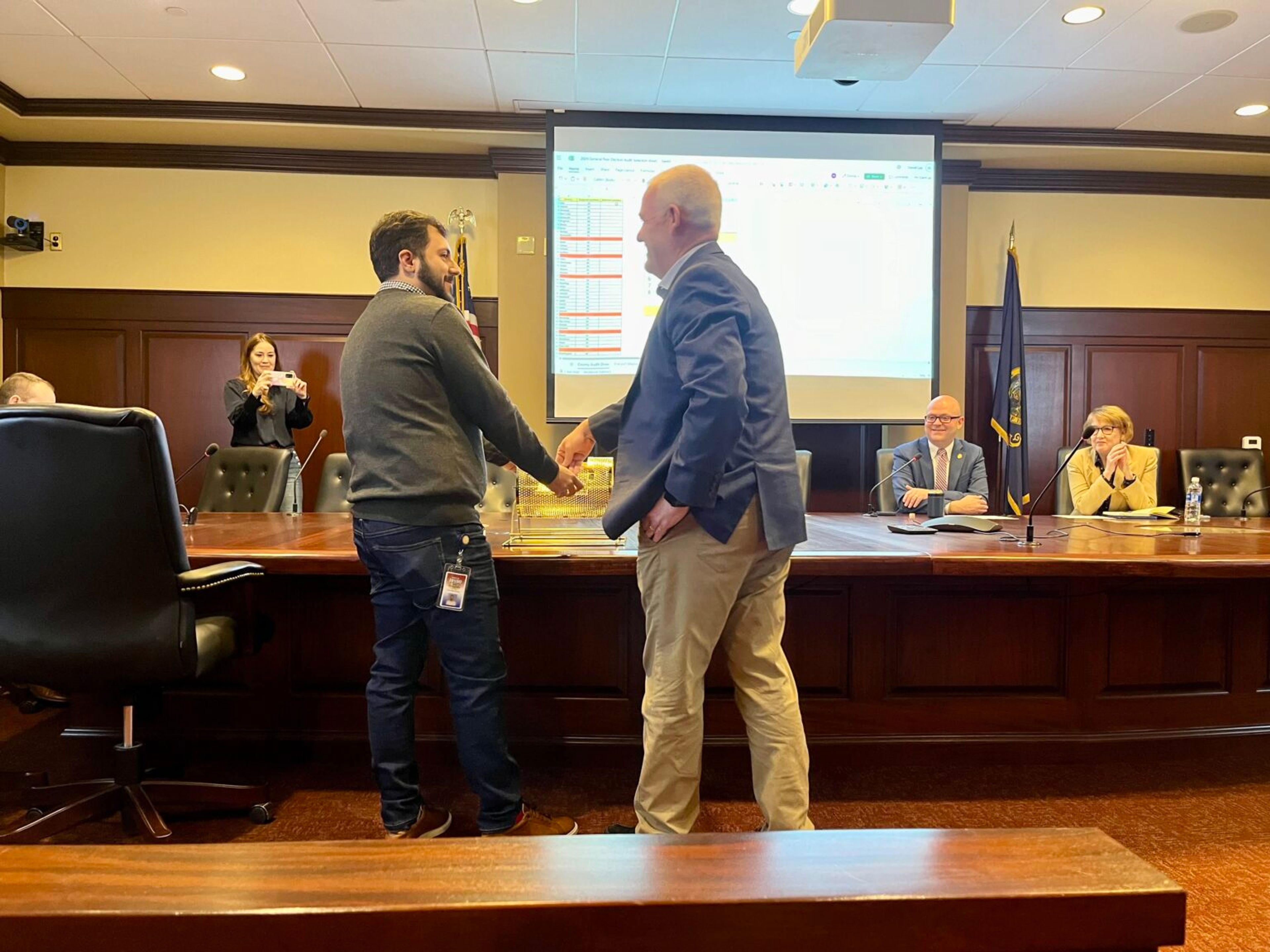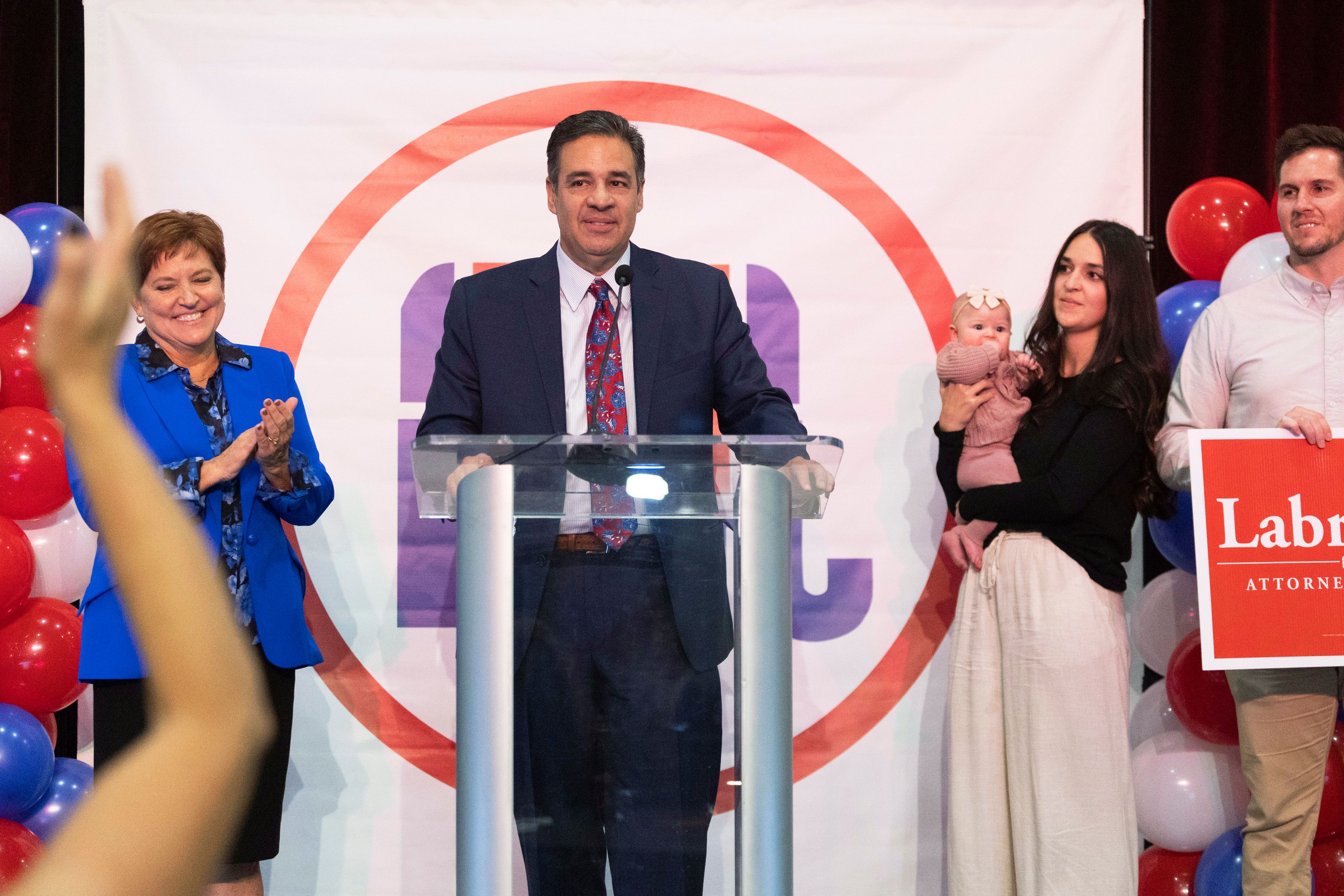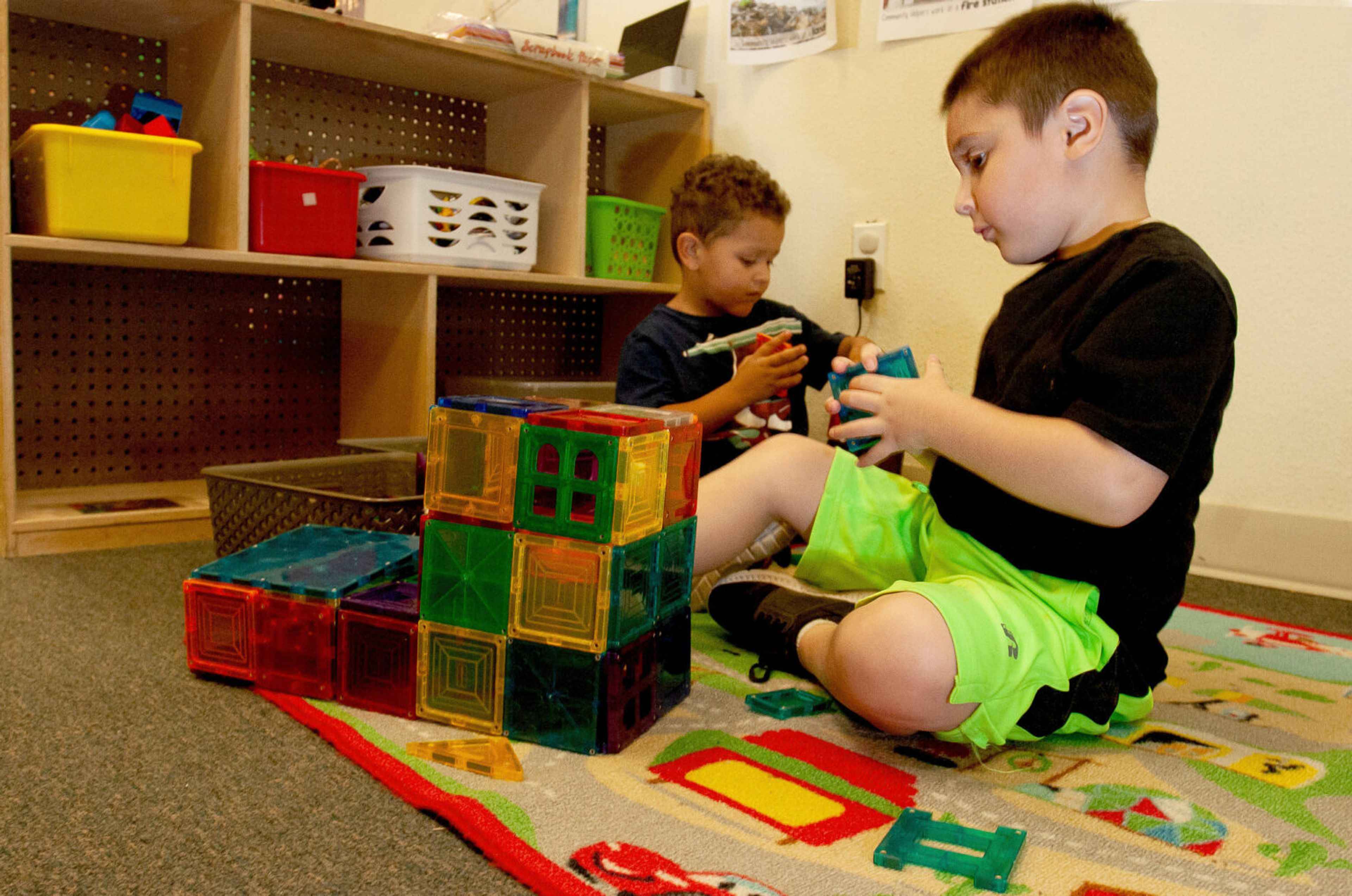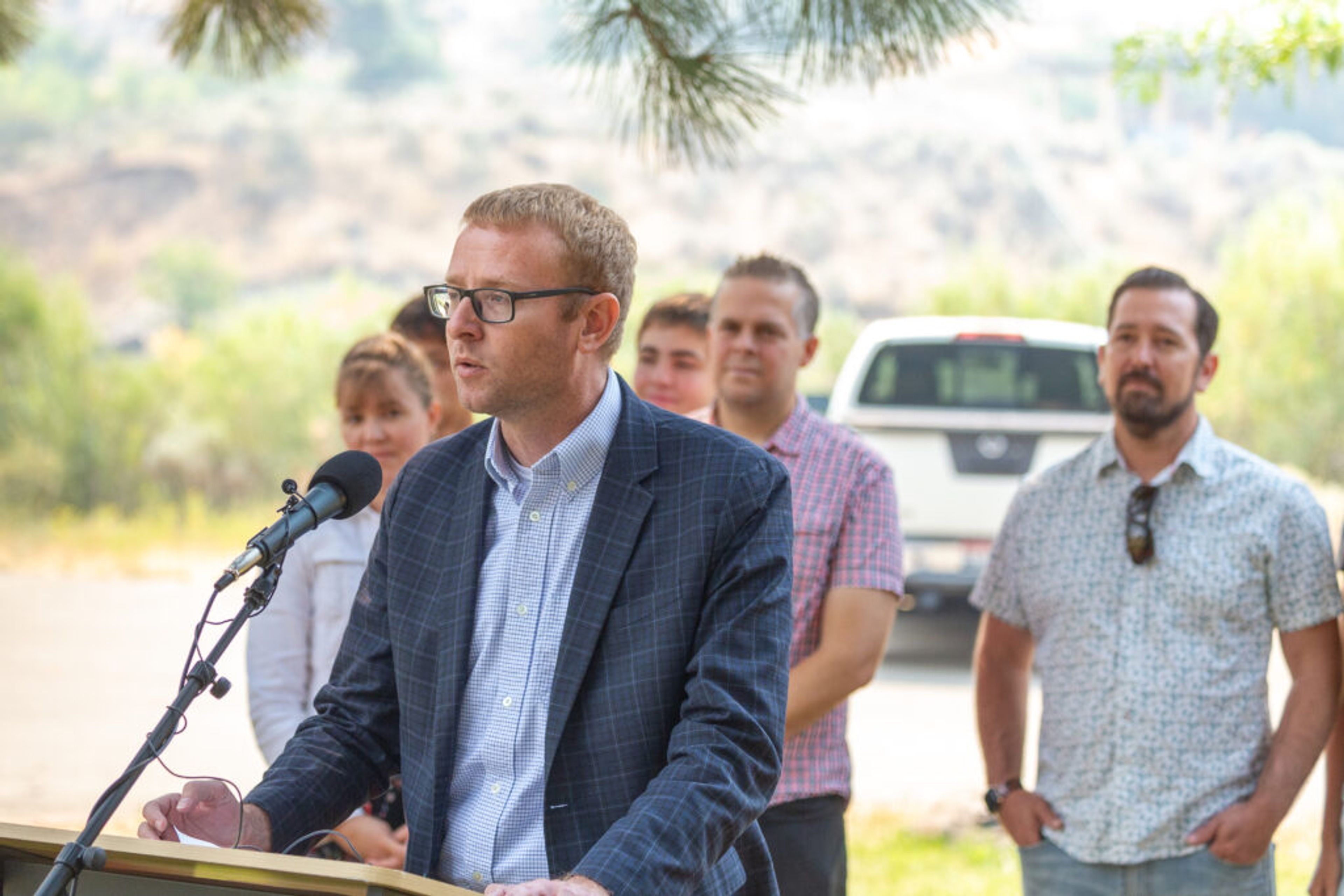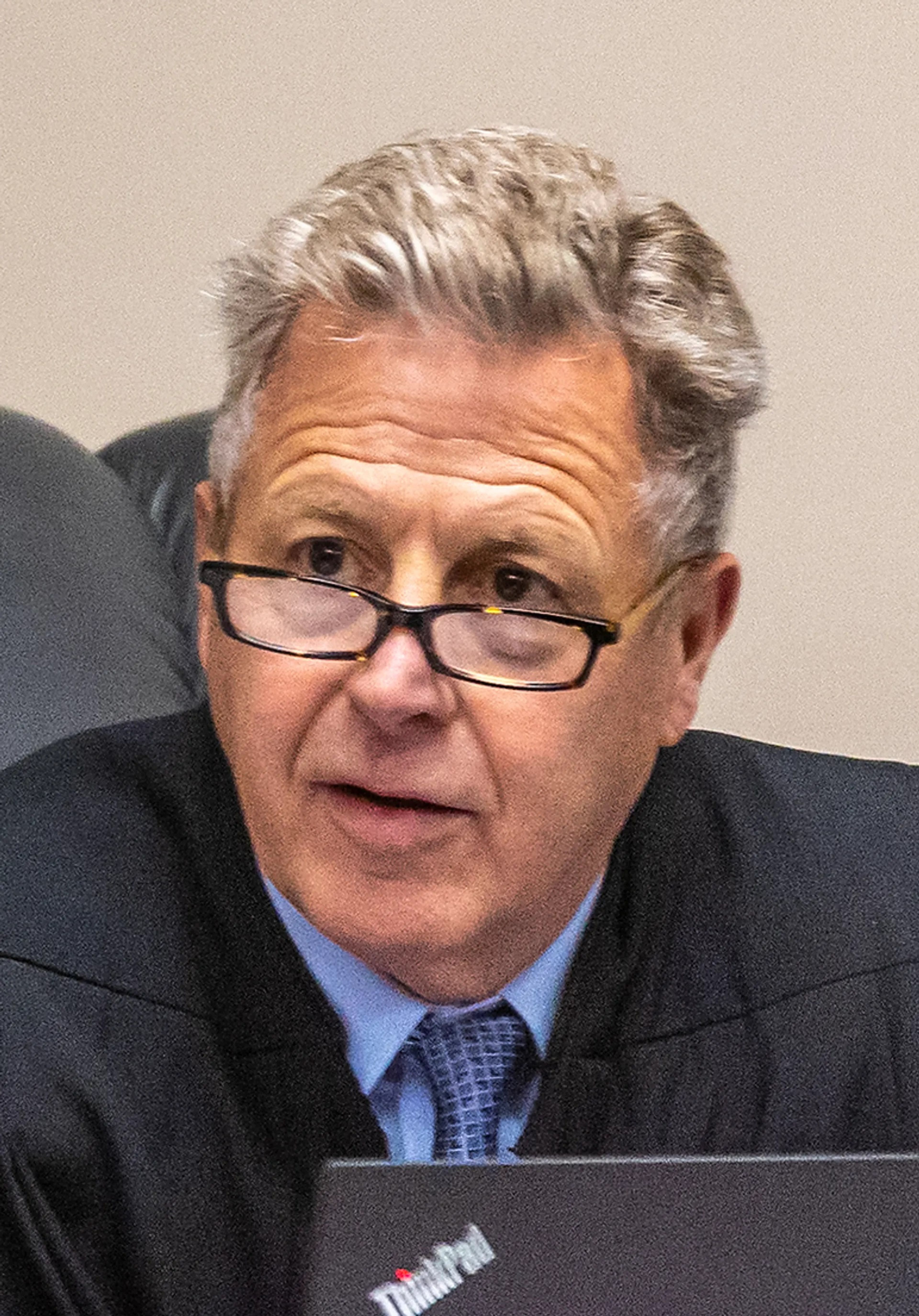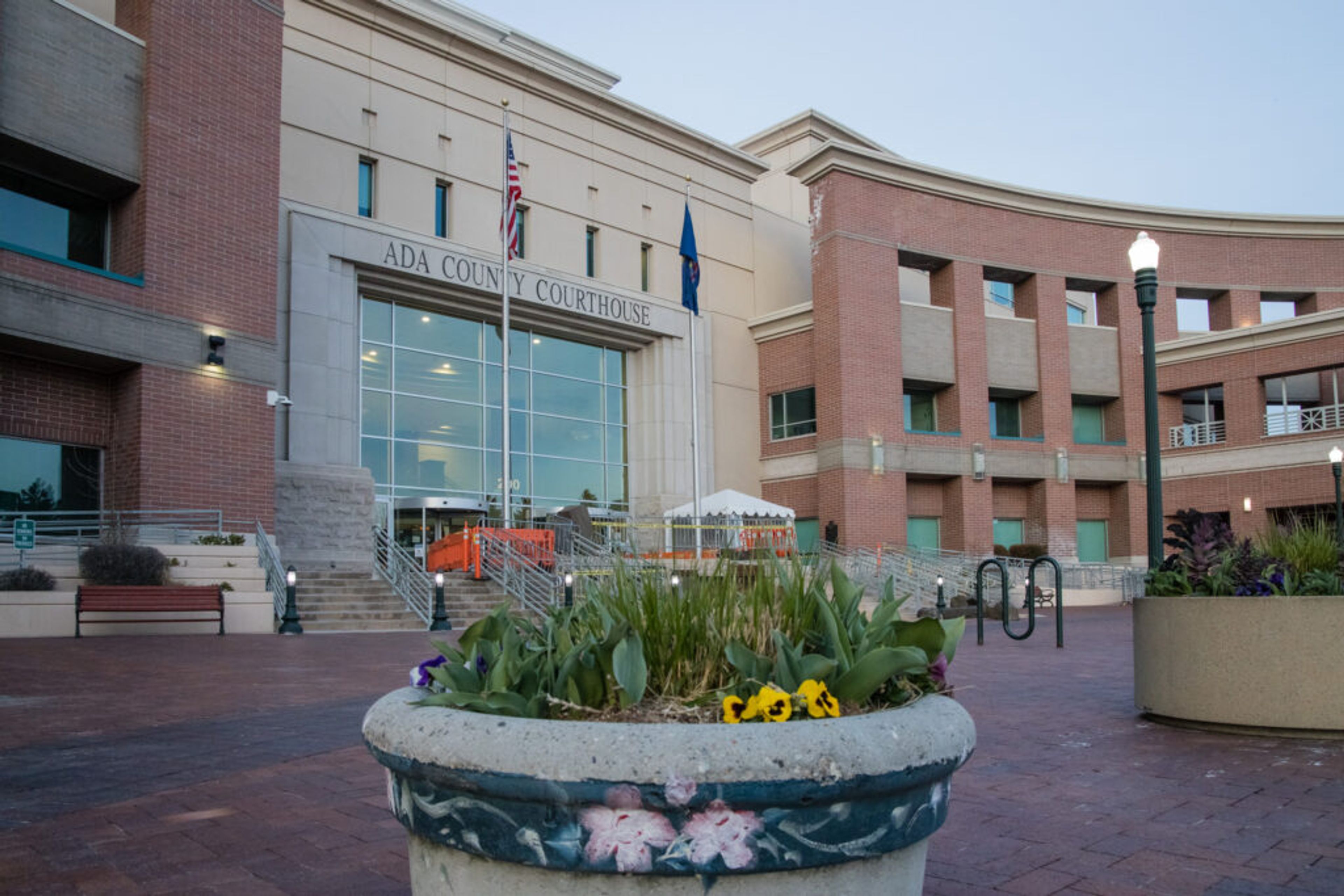It can be a summer well spent
UI program points American Indian high school students toward careers in science, tech, engineering, math
MOSCOW - Kiara Garcia already has her eyes on college and a career as she prepares to start her senior year at Lewiston High School.
"I want to be a pediatric nurse," Garcia said, as she demonstrated the work she's doing this summer in a chemical engineering lab at the University of Idaho.
Garcia is spending her second summer at UI with the Helping Orient Indian Students and Teachers program, geared toward American Indian students interested in science, technology, engineering and mathematics. The students spend their mornings taking college-level classes and their afternoons at internships.
The program began at UI in 1994, when the school's Upward Bound director wrote a grant for funding from the National Science Foundation, said Native American Student Center director Sydel Samuels.
Now under the center's oversight, the state-funded program includes transportation, housing and food for six weeks spent both in Moscow and at the university's McCall field campus. This year's students traveled to Portland, Ore., for the final weekend of the program, which wraps up this week.
Garcia, a member of the Nez Perce Tribe, said she appreciates both the jump-start the program gives her toward her career and the opportunities it provides for connecting with other Native American students.
"One of my favorite parts is definitely the cultural aspect," she said.
In the lab, Garcia has been working alongside college students, such as chemical engineering undergraduate major Amanda Vu. The project she's been helping with, Garcia said, ultimately could lead to a device, similar to glucose meters used by diabetes patients, that would test for disease.
"It kind of gives her an idea of what engineers really do," Vu said.
Isaac Ford, a Navajo student who will be a junior at Lapwai High School in the fall, attended H.O.I.S.T. this summer for the second time.
On a recent afternoon, he sat at a counter in a mechanical engineering lab, glancing at a computer as it displayed results of an experiment on diesel-like fuels.
The goal, Ford explained, was to see how long it took for certain biofuels to auto-ignite and how that compares to diesel fuel.
As he waited for the next burst, Ford reflected on his experience.
He could have spent the summer playing video games, he said, but "instead I'm learning about something important."
He's not sure which type he'll specialize in, Ford said, but he plans to go into engineering.
"I probably see myself going here," he said of the UI.
Diamond Howard, from Owyhee, Nev., on the Duck Valley Reservation, is participating in H.O.I.S.T. for the first time. The program is giving Howard, a member of the Shoshone-Paiute Tribe, a chance to stretch her wings.
"I like math and science," she said. "But I just kind of wanted to get away from home for a while."
Howard, who will be a high school sophomore in the fall, has been working alongside incoming Lapwai High School senior Cloud Williams at her internship with UI's Franklin H. Pitkin Forest Nursery, just east of Moscow.
Williams, of the Nez Perce Tribe, intends to be a Fish and Game warden someday. He's attending the program for the third year and plans to attend UI, which he said has a good biology program.
Without H.O.I.S.T., Williams said, he would "probably just lift (weights) and be lazy - or go fishing."
Instead, he and Howard have planted, transplanted, thinned and weeded seedlings at the nursery, with greenhouse technician Jillian Greene, who recently earned bachelor's degrees in environmental science and international studies.
"It's very hands-on," Greene said of the work the program's interns do.
Interaction with college students and faculty members is an important element of H.O.I.S.T., Samuels said. Students get a feel for the college campus environment as well as a peek into professions that might intrigue them.
"We really try to make the internships work for their interest areas," Samuels said.
Samuels, who herself is Nez Perce, often sees transformations among the students who return from year to year, as well as longer-term results after they finish high school.
One former participant, she said, recently became a doctor. Hailey Wilson, a Nez Perce tribal member, completed medical school at the University of Washington and is a resident physician at Swedish Cherry Hill Family Medicine in Seattle.
"We have a lot of H.O.I.S.T. alumni doing great things," Samuels said.
---
Stone may be contacted at mstone@lmtribune.com or at (208) 848-2244. Follow her on Twitter @MarysSchoolNews.
